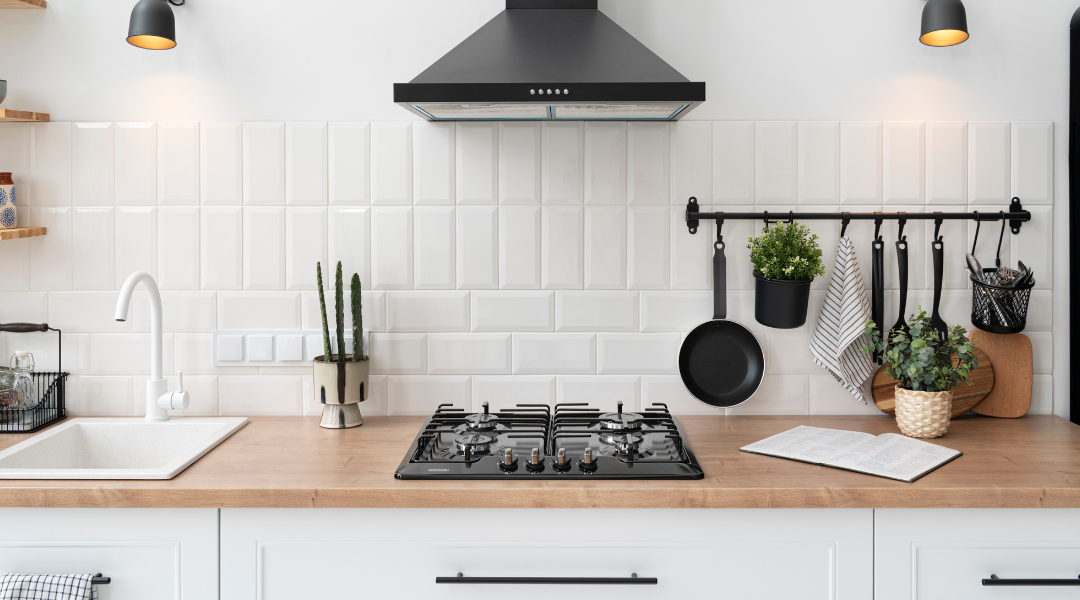Along with materials like marble and epoxy, butcher block countertops appear as a popular trend for kitchen renovations. While there’s a certain farmhouse appeal to installing wooden furniture and fixtures into your modern home, a question lingers for homeowners: ‘What butcher block countertops pros and cons should I expect?’ In this blog, we answer this question and more.
Questions About How to Care for Your Stone? Watch Our Video
What are Butcher Block Countertops?
Butcher block countertops are counters which literally use wooden blocks of any wood type or color as countertops. Uniquely designed for kitchen use, butcher block countertops are popular for the warmth they bring to the home, inviting southern charm with rich natural tones and utility as convenient food prep areas. In fact, you may recognize butcher block countertops being used by some of your favorite southern chefs, such as in the home of Oklahoma’s Pioneer Woman, Ree Drummond, or the family farmhouse of Molly Yeh from Girl Meets Farm!
From rawhide country to urban flatland, homeowners across the country find use for butcher block countertops. While the appeal may have grown from displaying delicious food on warm wooden grain, it’s important that homeowners seriously consider butcher block countertops’ pros and cons.
Butcher Block Countertops Pros and Cons
It’s not shocking that butcher block countertops have gained appeal over the years; the variety of wood grains, types, and tones offered with these blocks provides a wide selection of choices to turn a cold modern home into an inviting urban cottage. In addition to style, butcher block countertops are also quite affordable, averaging between $30-$40 per square foot! Homeowners can even DIY their butcher block installation right away with the right tools and professional tutorial video on hand.
However, there’s no debate when comparing butcher block countertops pros and cons against natural stone. In the end, butcher block presents too many issues, such as:
- Maintenance: In contrast to marble or soapstone, butcher block countertops require much more upkeep. Whereas you need only seal a stone counter annually, butcher block countertops need to be sanded and resealed every six months to prevent wear and tear. To keep the wood finish intact, owners must also use double coats of food-safe oil to keep the countertop’s appearance from dulling.
- Sanitation: Since the natural wood of butcher block countertops is porous, they’re also prone to carrying germs if not properly sealed or cleaned. Unlike natural stone, though, butcher block countertops are less forgiving of dark sauces or drinks regardless of the cleaner used, which can result in unflattering stains on the surface. Over time, your ‘cottage-core’ look can turn into a ‘cottage-spore’ bacterial playground. Ew.
- Scratches: You’d expect a material named butcher block to be hard, right? In truth, butcher block countertops are quite soft, making them less capable of handling scratches, dents, or marks from cutting tools. Ironic, considering these blocks resemble cutting boards that last during food prep.
- Temperature Sensitivity: Smell something burning? No, you didn’t leave the stove on or a candle burning. Most likely it’s your butcher block countertop after putting a hot pan on the surface! Being made of wood also comes with high susceptibility to temperature, which can be hazardous when cooking. If ugly burn marks weren’t bad enough, butcher block is also affected by seasonal changes, causing the wood to contract or expand and create cracks on the surface.
- Moisture: Anyone with a kitchen knows liquids are in constant use. Strangely enough, butcher block countertops are at great risk around liquids. Since wood absorbs water like a sponge, any lingering moisture not cleaned up could fester, causing mold or warping to occur.
Explore Reliable Countertop Materials with ZStone
There’s much to consider from the butcher block countertops pros and cons presented. At the end of the day, though, homeowners who choose wood risk making their kitchen a ghost town rather than a comforting country kitchen. For a reliable material that can match any aesthetic nothing holds quite the same appeal and long-term value as stone countertops. Interested in finding a durable stone alternative for your kitchen renovation? View ZStone Creation’s Materials page or contact us now!


